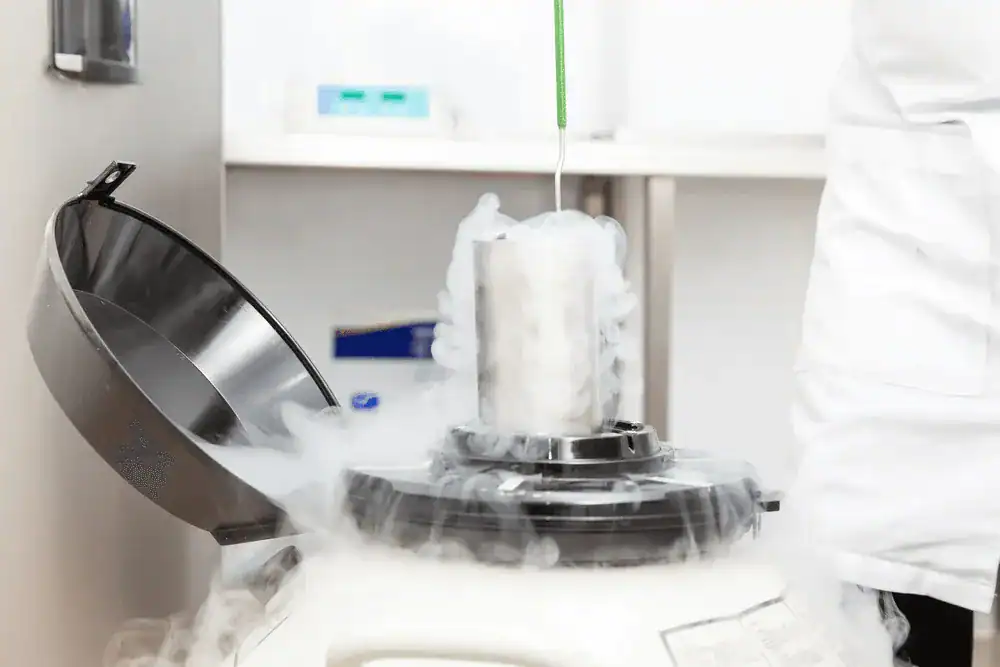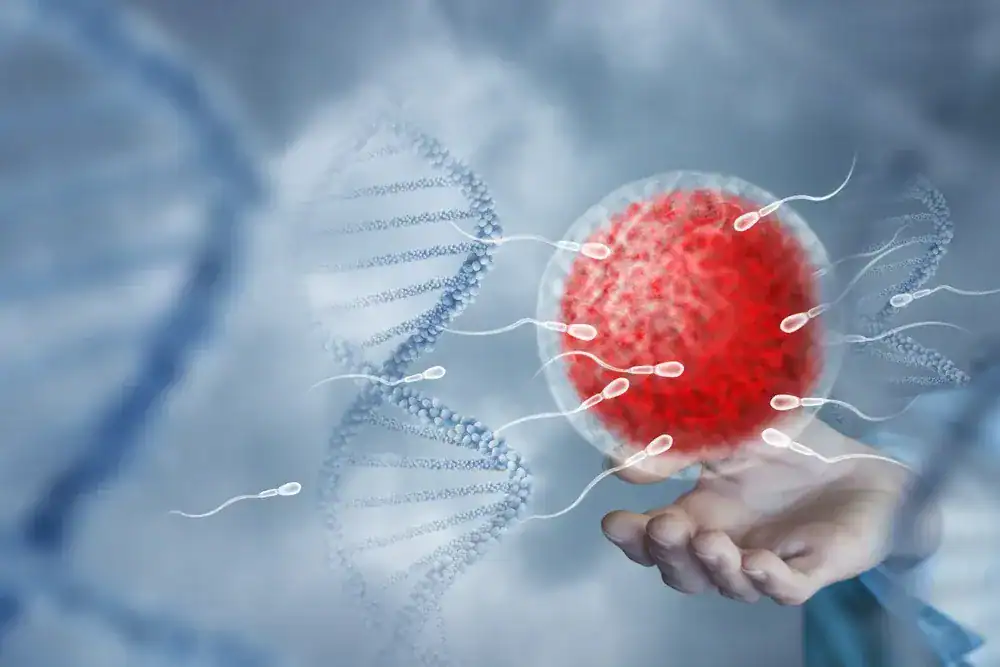Fertility Preservation
Fertility preservation is a procedure test of preserving or saving eggs, sperm, or reproductive tissue to help people have biological children in the future. Usually, fertility preservation is done before an individual undergoes medical treatment that could lead to infertility, for instance, chemotherapy. It is also a wise option for people who want to delay childbirth for professional or personal reasons. The procedure ensures that individuals have the option of having children at a later stage in life. Freezing eggs, sperm banking, and in vitro fertilisation (IVF) with freezing embryos are a few examples of fertility preservation procedures.

Reasons for Fertility Preservation
These days, fertility preservation is being considered by individuals and couples alike. Some compelling reasons to consider this procedure are:
- Professional or Personal Timing: Couples may opt to preserve their gametes (eggs or sperm) as their immediate focus is their career or achieving personal goals.
- Age and Egg Quality: As the quantity and quality of eggs decline with age, women may consider fertility preservation early on. Fertility preservation helps keep the option of building a family open in the years to come.
- Medical Reasons: Fertility can be affected by specific medical treatments or conditions, and a few sexually transmitted diseases (STDs). If such conditions are diagnosed, an individual might consider fertility preservation to have children later on.
- Chemotherapy: Cancer treatments like chemotherapy can adversely impact the reproductive cells. Freezing the eggs or sperm before the treatment can help avoid potential infertility.
- Radiation Therapy: Radiation therapy, like chemotherapy, also has a damaging effect on one’s reproductive organs and fertility.
- Surgery: Surgical procedures associated with the reproductive organs may reduce the chances of fertility and conception. For such individuals, fertility preservation is a precautionary step.
When to See a Doctor
- Cancer Diagnosis: An individual diagnosed with cancer should consider consulting for fertility preservation before starting any treatment.
- Age: By the age of 35, a woman’s fertility and a man’s sperm quality begin to decline. Consulting a fertility specialist helps individuals make well-informed decisions to preserve their fertility.
- Gender Transition Treatment: Individuals planning to undergo gender transition treatments, like surgery or hormone therapy, should consider fertility preservation. It helps store their reproductive cells for future use.
- Genetic Disorders: Consulting a specialist offers insights into how genetic disorders affect reproductive health and the preservation options available.
Why Choose Us
Choosing the right fertility clinic is crucial for starting your family. At Birla Fertility & IVF, we offer personalised care with expert specialists guiding you every step of the way. Our advanced labs and outstanding success rates have helped over 2,30,000 patients achieve their dream of parenthood.
Frequently Asked Questions
You can opt for fertility preservation if you are about to undergo medical treatments like chemotherapy, or simply if you wish to conceive at a later stage in life.
Most sperm and eggs can remain frozen for about ten years or more if carefully frozen and monitored.
Fertility preservation procedures do not guarantee pregnancy. Common procedures like freezing eggs, sperm, and embryos have a long history of success for a few people. Schedule an appointment with your healthcare provider to understand more about fertility preservation.
Patients with cancer can opt for fertility preservation if they are scheduled to undergo chemotherapy, radiation, or surgery that might affect their chances of reproduction.
Some common options to preserve fertility include egg freezing, embryo freezing (for couples), sperm freezing, and ovarian tissue freezing. These methods preserve eggs or embryos for future use.
Some types of cancer such as leukaemia has a higher risk of cell contamination. The tissue samples are screened for cancer cells prior to storage. It is also screened thoroughly by the most advanced techniques to detect the presence of micro-metastatic cancer cells when the patient wishes to use it for his fertility treatments.
Book an appointment
Hassle-Free Appointment Booking
Select Preferences
I know my doctor
Costs for Various Treatments in India
- Double Marker Test Cost in India
- Transvaginal Ultrasound Cost in India
- Hysterectomy Surgery Cost in India
- Testosterone Test Cost in India
- Adenomyosis Surgery Cost in India
- Ectopic Pregnancy Treatment Cost in India
- Miscarriage Treatment Cost in India
- Bartholin Cysts Treatment Cost in India
- Preimplantation Genetic Testing (PGT) Cost in India
- Endometrial Receptivity Analysis (ERA) Cost in India
- 3D Ultrasound with Color Doppler Cost in India
- Endometriosis Treatment Cost in India
- Embryo Freezing Cost in India
- Semen Analysis Test Cost in India
- Azoospermia Treatment Cost in India
- Egg Donor IVF Cost in India
- HyCoSy Test Cost in India
- Endometrial Biopsy Cost in India
- HSG Test Price in India
- NT NB Scan Cost in India
- FSH Test price in India
- E2 (Estradiol) Serum Test Cost in India
- Surrogacy Cost in India
- Sperm Freezing Cost in India
- Varicocele Cost in India
- Egg Freezing Cost in India
- IUI Treatment Cost in India
- IVF Cost in India
- AMH Test Cost in India
- ICSI Treatment Cost in India
- STD Test Cost in India
Specialist for Various Treatments in India
- Cervical Cancer Doctors in India
- Infertility Doctor in India
- ICSI Doctors in India
- Best Gynaecologists in India
- Uterine Fibroids Specialists in India
- Erectile Dysfunction Treatment Specialists in India
- Endometriosis Treatment Specialists in India
- Hormonal Specialists in India
- Endocrinologists in India
- Azoospermia Doctors in India
- PCOS Doctors in India
- Varicocele Doctors in India
- Best Doctors for Ovarian Cysts in India
- Male Infertility Specialists in India
- IVF Doctors in India
- IUI Doctors in India
- Hormone Specialists in India

 Our Centers
Our Centers



















